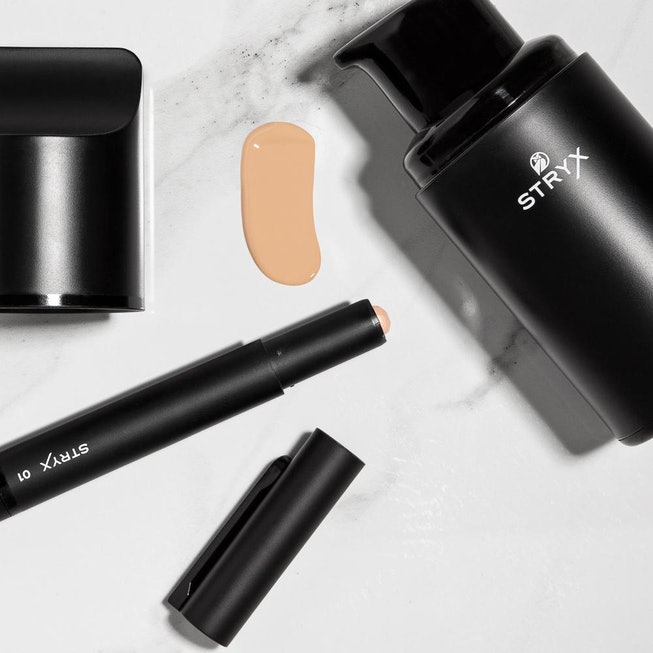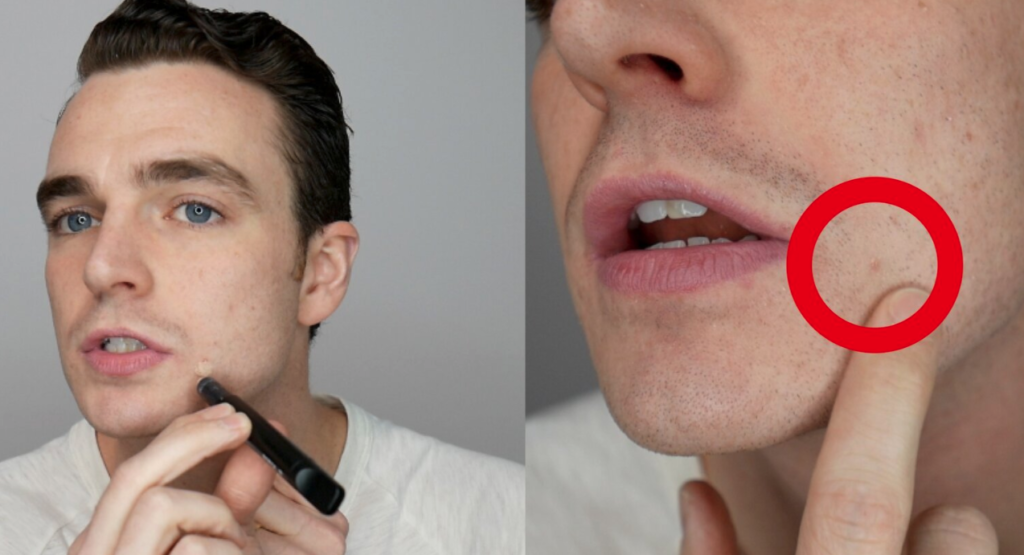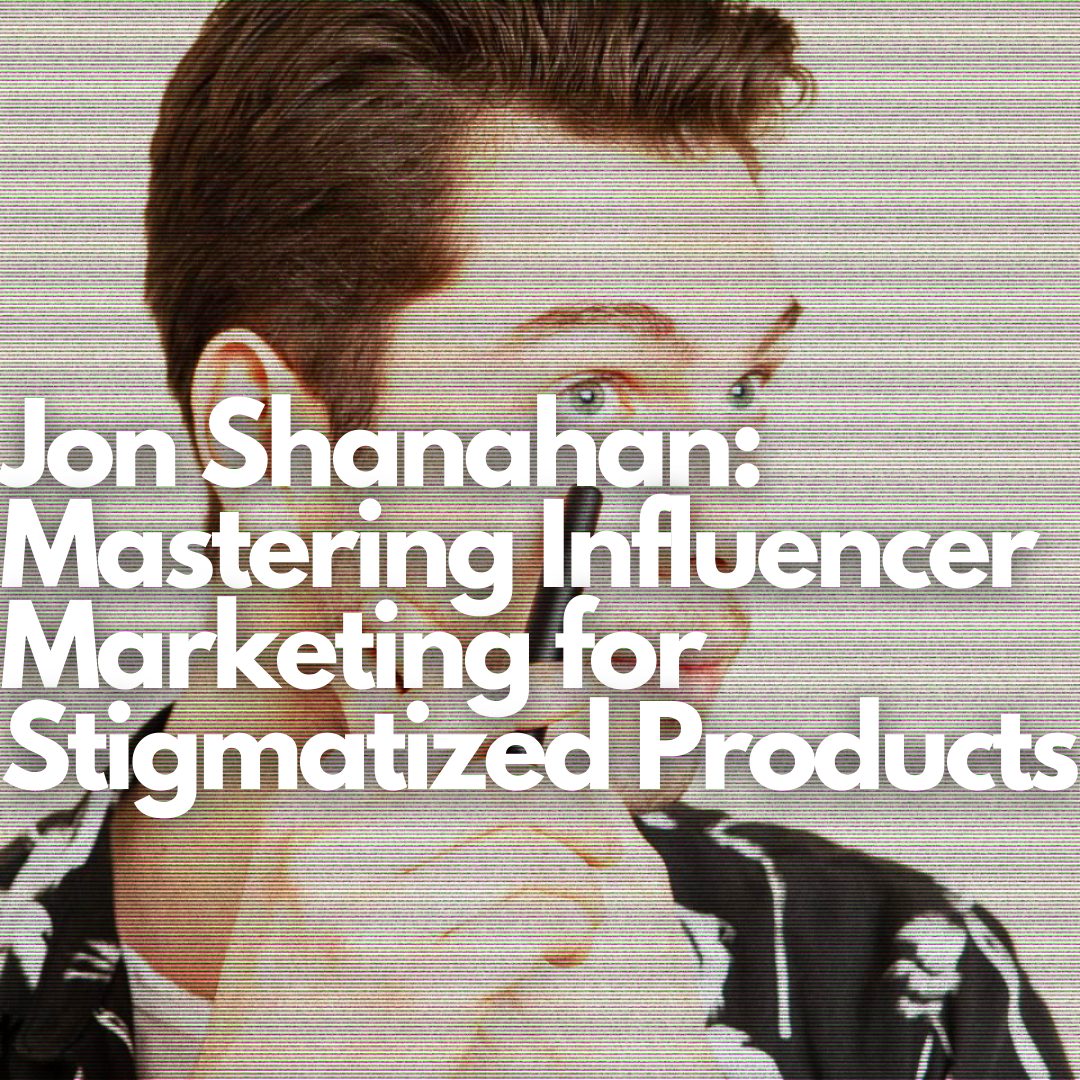Brand
Jon Shanahan: Mastering Influencer Marketing for Stigmatized Products
Overcoming the stigma around products like men’s cosmetics calls for a multi-pronged approach. Product quality, customer knowledge and product positioning is key says Jon Shanahan
Jon Shanahan has a sales background having worked at Apple for several years before moving to a B2B predictive analytics firm. He says it is at the analytics firm that he got a front row seat to the fashion and apparel supply chain, something that would be pivotal for his future as a men’s fashion entrepreneur.
His influencer journey began when he started reviewing men’s fashion on YouTube. He was buying a lot of clothes but he could not find reviews for them.
“I thought ‘Well, I’m Buying these clothes and I can make videos. So why not try it on YouTube?’ That was in 2014 before YouTube was the number one career that young people wanted to have. I started a YouTube channel in the men’s style and fashion space and did that for about six years. Three of those years were full time just doing the YouTube channel. And so I was an influencer first. I gotta watch the rise of the influencer economy, being a part of it too.”
For the reviews, Jon says he avoided paid campaigns and brand partnerships. He opted to do unbiased non-sponsored reviews instead such that good products would get good reviews and bad products would get bad reviews.
“Even in 2014, I could see audiences didn’t really trust the brand sponsorship model, especially for reviews. So I did very few brand partnerships over the course of my channel. It was mostly built on affiliate marketing. It was very much based on the wire cutter model. If I’m giving really solid, honest reviews that build trust in the long run, I can say whatever I want about a product.”
Stryx
Jon met his Stryx cofounder through the YouTube channel.
“I was able to take on and lead the content creation side of things for Stryx because ultimately we have to do a lot of education around these products and have a very approachable face and personality and I’m a pretty good fit for that.”
The idea of forming Stryx followed the identification of a gap in the cosmetics space for men.
“There are a thousand options for women to fix their appearance instantly but there are no brands specifically for men to do that. And there’s a huge stigma around these products. There’s a lot of studies about how 40 to 60 percent of men are using these products in some capacity but there’s no male equivalent. And so that’s what we really tried with Stryx and make it very approachable.”
Stryx launched to the public in January 2019. Jon mentions there were several years of R&D that preceded that launch. Since January 2019, the company has grown.
“We have been aggressively expanding our product line just in the past eighteen months. We have 2,000 CVS stores and a few more retail locations in the works.”

Effectively the chief influencer at Stryx, Jon observes that his experience as an established influencer has come in handy in his current role.
“It was definitely helpful to me to have had a lot of outreach from brands. Just to see what got my attention. Ultimately, being an extremely Influencer friendly, creator friendly brand is important to me. I want us to not just align with an influencer because they make great content but also to grow with them.”
He believes building a relationship with influencers is key.
“We pay out a lot to creators each month because we want to have that relationship, develop that relationship and produce great content at the same time. So it’s a win-win. Being an influencer has informed like every decision internally about how we reach out, how we communicate, how we direct. We give a lot of leeway to our guys and say ‘Hey look we’ve got this cool product. However you want to talk about it, go for it.’”
Handling stigma in marketing campaigns with men and makeup
A key challenge for Stryx’s has been handling the stigma that surrounds men and makeup. Jon says the brand does this in a number of ways.
First, product and packaging.
“If we build these products for men, then they can embrace them. And the fact that we have a really sleek and discreet packaging just plays into making sure these products are accessible.”
Second, product positioning at stores.
“Positioning is intentional. We don’t think guys are comfortable going to a cosmetic aisle but they are comfortable going near the shave products. Ultimately, our product is just like a shave product which is for your face. The products have a stigma around them but if we put these right next to the razors, we show that they could be a central part of your routine. We show this product is no different from shaving your face. Using this product helps you accomplish being confident and being handsome.”

Third, demonstrating that men have always used cosmetic products.
“Even historically, these products were used by men. There is not a problem with using them necessarily.”
Fourth, arming men with knowledge.
“If somebody finds a new cookware brand, they spread it to everybody they talk to. But it is much more discreet with guys. There’s like a one-on-one sharing approach to that. It’s like ‘I have this problem and you have this problem’ and share it. And so it is really about arming a lot of guys with knowledge that these products won’t make you less masculine.”
Fifth, Jon’s experience as an influencer.
“My experience as an influencer gave me very thick skin for negative feedback on the Internet because we get a lot of that. You learn not to take it personally.”
Stigma affects the search for influencers as well
Stryx has experienced pushback when looking for influencers to promote their products due to the stigma, Jon says.
“We get more pushback than I’ve experienced with an apparel brand. We will get men that say they would use this to go on camera but they are not comfortable promoting it. A lot of men are using it but they are not going to talk publicly about it.”
He does recognize that the market is slowly changing for the better as is evidenced by the popularity of creators such as Zak Heath.
“There’s macro things happening in the world that are letting guys be more comfortable with products like this.”
Jon has found that the best approach is to work with creators like Ethan Wilson who inject humor in their content.
“Finding TikTok creators who can talk about a product like this in a tongue-in-cheek way, with self-deprecating humor. That’s definitely worked out for other men’s brands before.”
He has noticed that female influencers working with male partners are more open to promoting Stryx’s products.
“While we have some pushback with men, female influencers working with husbands or boyfriends are more open to it. That’s because they have put this product on their partner before.”
Stryx’s #DadsCanToo Campaign
A father’s day campaign on TikTok was one of Stryx’s most successful, Jon says.
“We had a campaign where it was #DadsCanToo. The angle was really saying like your dad wants to look and feel his best and here is a concealer that he can use to look and feel his best. We used a TitTok audio where we said we can all agree that ‘Dads Can Too’. That Stryx wants to make every guy look and feel their best no matter what. And then we did like a Before and After. We reached out to influencers and said ‘We’re doing this challenge’ and seeded the product, the concealer to those who did the challenge.”

The campaign proved to be a test for Stryx, Jon says, on whether the brand could get engagement on such campaigns and how it could have the family participate. The company tracked campaign results via the TikTok hashtag #DadsCanToo.
“If someone used the hashtag and it used the sound, our account was there. We saw traffic driven through there. We had 20 to 30 actual video uploads from that. We definitely saw a sales lift but we also saw growth of followers on our TikTok account.”
Jon Shanahan’s Advice for companies getting into influencer marketing for the first time
Jon recommends that depending on the type of product, companies should try to seed their product to some creators.
“Don’t say you want some kind of post for it. Don’t set any expectation other than ‘Hey, we just want your feedback and we want you to try this out’. It’s way more powerful.”
Future Plans
Stryx has a product launch coming up and will thereafter do a couple of campaigns around the holidays with a focus on partner gifting, Jon says.
“It’s like women will help to overcome the stigma immediately and they understand the value of the product.”
Final Words
He has some final words for brands working with influencers.
“The creator economy is in an exciting place. If you stand out as a brand that works well with creators, we all talk to each other. And so word gets around it. And so if you treat influencers well, there is a positive effect of that all over.”
Jon Shanahan is cofounder and chief marketing officer at Stryx, a men’s corrective cosmetics company. He is a fashion expert whose worked in the technology and retail industries. Jon is also the founder and president of The Kavalier, a menswear review website and YouTube channel dedicated to helping men look, feel and live better. Stryx has over 160,000 followers on Instagram and 85,000 TikTok followers. The Kavalier has more than 130,000 YouTube channel subscribers. Based in New York, Jon is an information technology and business administration graduate from La Roche College.













